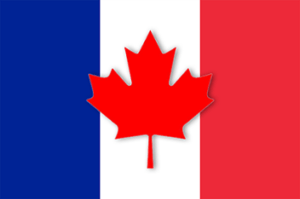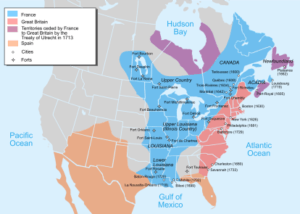Translating for a French Canadian Audience
 June 20, 2016 – Language Connections, as a Boston-based translation and interpreting services company, we are often asked to produce a French translation. The first question our project managers ask the client is: Which target audience are you translating for? Many people seem taken aback by this question as they assume that differences between French in France and that in Canada are primarily spoken ones, and that the written language must be the same. Since many of our projects deal with translating services for French Canadian or Québec French speakers, we often encounter this issue.
June 20, 2016 – Language Connections, as a Boston-based translation and interpreting services company, we are often asked to produce a French translation. The first question our project managers ask the client is: Which target audience are you translating for? Many people seem taken aback by this question as they assume that differences between French in France and that in Canada are primarily spoken ones, and that the written language must be the same. Since many of our projects deal with translating services for French Canadian or Québec French speakers, we often encounter this issue.
According to Leo Galperin, President of Language Connections, “Most linguists agree that the difference between Canadian French and that used in France (also known as Standard European French) is larger than that between British and US English, and comparable to differences between European and Brazilian Portuguese.”
 But to understand the reason why Canadian French differs from European French, one must know a little bit of history. French colonies in Canada were first established by pioneers who brought with them Classical French. Later, as the British colonized part of Canada, they brought English into the areas they conquered. With strong influence from the British and the neighboring United States, over time Québec French adopted a large number of English words, especially informal spoken Québec French. One interesting example of this is the bilingual greeting: “Bonjour-Hi.”
But to understand the reason why Canadian French differs from European French, one must know a little bit of history. French colonies in Canada were first established by pioneers who brought with them Classical French. Later, as the British colonized part of Canada, they brought English into the areas they conquered. With strong influence from the British and the neighboring United States, over time Québec French adopted a large number of English words, especially informal spoken Québec French. One interesting example of this is the bilingual greeting: “Bonjour-Hi.”


Below are some common phrases for comparison:
| English | Québec French | European French |
| my girlfriend | ma blonde | ma petite amie or ma copine |
| my boyfriend | mon chum | mon petit ami or mon copain |
| go shopping | faire du magasinage | faire les magasins |
| the car | le char | la voiture |
| fall in love | tomber en amour | tomber amoureux |
| have fun | avoir du fun | s’amuser |
About Language Connections:
Language Connections is one of the top language service companies in the US. Over the last 30 years, we’ve focused on providing the best business translation services, interpreting services, as well as interpreter training and customized language training programs. In addition to top-tier corporate language training, we offer certified corporate interpreters and professional business translation services in 200+ languages. Our network includes linguists with backgrounds in all major industries. They’re ready to meet your needs, whether they’re for technical translation services, legal translation, government translation services, international development translation services, education translation services, life sciences translation, or something else. Reach out to us today for a free quote on our cost-efficient and timely translation services, interpreters, or other linguistic services.
Language Connections LLC
2001 Beacon Street, Suite 105
Boston, MA 02135
Phone: +1-617-731-3510
Email: service@languageconnections.com






